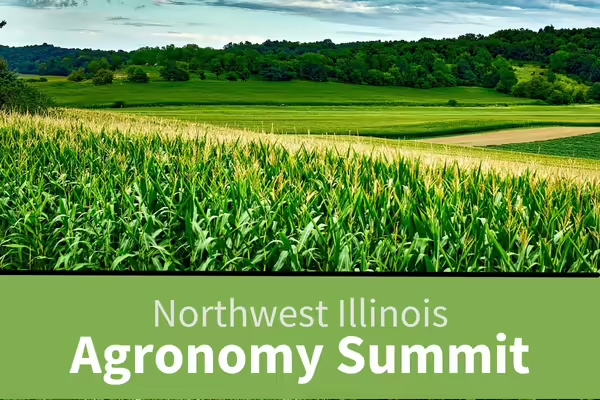
The rapidly expanding market of biologicals, biostimulants, and biofertilizers will be a topic of discussion at the upcoming Northwest Illinois Agronomy Summit. With numerous companies offering unique bio-based products tailored for farms, it's essential to understand their practical applications. Dr. Connor Sible, Research Assistant Professor in the Department of Crop Sciences at the University of Illinois, will share insights from eight years of trials involving various product types and cropping systems. He will discuss current knowledge on field use of biologicals and important considerations before implementing them on your farm.
The summit will also cover a range of other pertinent topics, including:
- Managing P & K to Optimize Corn Response to N in Northern Illinois Soils
- Corn and Soybean Management Considerations for 2025
- Resistance, Mitigations, and Metribuzin: Aspects of Weed Management in 2025
- Highland Community College Agriculture Research Update
Attendees can earn Continuing Education Units (CEUs): 1 in nutrient management, 2 in crop management, and 1 in Integrated Pest Management (IPM).
The Northwest Illinois Agronomy Summit will take place at the Highland Community College Student Conference Center in Freeport, IL, on Wednesday, January 29, 2025, from 10 a.m. to 2:30 p.m. To register go online or call (815) 986-4357.
University of Illinois Extension develops educational programs, extends knowledge, and builds partnerships to support people, communities, and their environments as part of the state's land-grant institution. Extension serves as the leading public outreach effort for University of Illinois Urbana-Champaign and the College of Agricultural, Consumer and Environmental Sciences in all 102 Illinois counties through a network of 27 multi-county units and over 700 staff statewide. Extension’s mission is responsive to eight strategic priorities — community, economy, environment, food and agriculture, health, partnerships, technology and discovery, and workforce excellence — that are served through six program areas — 4-H youth development, agriculture and agribusiness, community and economic development, family and consumer science, integrated health disparities, and natural resources, environment, and energy.